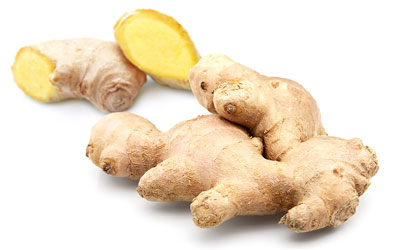Nausea with vomiting is one of the most common complications after surgery, affecting up to 30% of patients.1 The majority report severe symptoms that may prolong their hospitalization and increase the risk of other complications. Since existing treatments are not always effective and may cause side effects, scientists have turned their attention towards complementary solutions.
With a long-standing history of traditional uses for relieving digestive issues, ginger is one of the most popular candidates for preventing and treating nausea after surgery. Although several studies have previously aimed to explore the antipyretic and antiemetic properties of ginger, the results were contradictory.2,3
The purpose of this study was to evaluate the effects of ginger on postoperative nausea and vomiting.
The Study
This randomized, double blinded clinical trial was conducted by a team of university scientists at Khatam Al-Anbia Hospital in Shahroud, Iran. The intervention period lasted for five months.
Researchers recruited 160 patients scheduled for surgery at an average age of 37, which were randomly divided into two groups. One hour before surgery, the control group was given four placebo capsules, while the experimental group received four capsules with 250 mg of powdered ginger each.
Visual analogue scale (VAS) and questionnaires were used to determine the severity of nausea and vomiting at 2, 4, and 6 hours following surgery. For reference, VAS consists of a 0 to 10 scale, with “0” meaning no nausea and “10” meaning severe nausea.
The Results
The VAS scores after 2 hours following surgery were lower in the ginger group in comparison to the placebo group (2.9 score in comparison to 3.5).
Additionally, the total number of nausea and vomiting episodes was reduced in patients receiving ginger-containing capsules.
No side effects were reported in either of the groups.
What Does this Mean?
The results of this clinical trial show that ginger can effectively control nausea after surgery. Unlike many prescription solutions, ginger did not cause side effects.
One of the limitations of this study is that a relatively small dose of ginger powder was used in order to not to disrupt the pre-surgery process. As such, longer studies are called for in order to confirm these findings and determine effective, safe therapeutic dose of ginger capsules for nausea relief.
Other herbs capable of reducing nausea include chamomile, dill, and fennel.
Sources
- Iran Red Crescent Medical Journal, Evaluation of Oral ginger Efficacy against Postoperative Nausea and Vomiting: A Randomized, Double – Blinded Clinical Trial, 2013
Footnotes:
- Journal of Obstetrics & Gynaecology. (2008). Guideline for the management of postoperative nausea and vomiting. Retrieved September 10, 2020 from https://pubmed.ncbi.nlm.nih.gov/18644183/
- Support Care Cancer. (2012). Ginger (Zingiber officinale) reduces acute chemotherapy-induced nausea: a URCC CCOP study of 576 patients. Retrieved September 10, 2020 from https://pubmed.ncbi.nlm.nih.gov/21818642/
- Anesthesia and Analgesia. (2003). Ginger does not prevent postoperative nausea and vomiting after. Retrieved September 10, 2020 from https://pubmed.ncbi.nlm.nih.gov/12651648/





